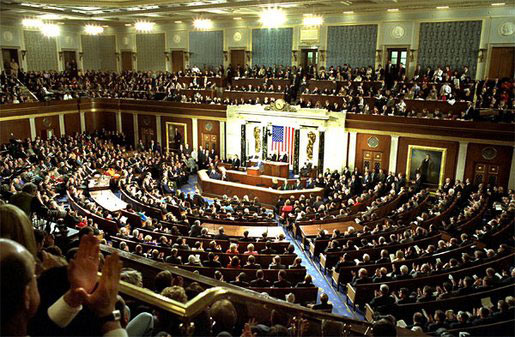
State of the Union Prep – The National Security Challenges
Following on from President Obama’s inauguration and looking forward to the State of the Union, ASP fellows set out some of the key national security challenges facing our nation:
Climate Security
Andrew Holland, Senior Fellow
Hurricane Sandy was only the most visible example over the past 4 years of natural disasters impacted by climate change. The 2012 drought in the American Midwest, the unprecedented tornado outbreaks of 2010 and 2011, and the weather that saw 2012 as the single warmest year on record for the US are other examples of how climate change is beginning to impact the U.S.
Abroad, we should expect that extreme weather caused by climate change will mean an increase in the tempo of disaster response by the Marines and Navy, especially for low-lying Pacifc coastal and island states. Meanwhile, droughts in sub-Saharan Africa and water security challenges in South Asia and the Mid East could act as ‘threat multipliers’ that increase the risk of conflict in these already volatile regions.
Both these threats abroad and at home will put increasing strain on already tight budgets, whether military, international aid, domestic infrastructure, or federal disaster response. Governing in this age of climate change will mean that we have to be flexible to new conditions and our infrastructure should be adaptable and resilient. Dealing with climate change is not just about building more wind turbines and solar panels: it means addressing the effects as well.
Energy Choices
Nick Cunningham, Policy Analyst
Dependence on fossil fuels presents significant national security concerns for the United States. This dependence leaves America vulnerable to energy price volatility, climate change, and it distorts our foreign policy. Achieving energy security will only come through developing sources of energy that are clean, safe, secure and abundant. However, this will require a sustained long-term commitment to R&D, allowing us to develop the next-generation of clean energy technologies. Our newfound fossil fuel abundance, while a short-term blessing, threatens to make us complacent. Congress and the Obama administration will need to find a way to prudently manage our fossil fuel resources while laying the groundwork for a clean energy future over the long-term.
Public Diplomacy
Matthew Wallin, Policy Analyst
Over the next four years, President Obama’s primary public diplomacy challenge will revolve around shaping the American message. Though the President has high approval ratings in several parts of the world, the U.S. still faces low levels of trust in areas where it holds national security interests. The President must focus on increasing American credibility, building trust relationships, and keeping the commitments we make to our partners overseas. Though much debate has occurred concerning America’s choice of medium—be that radio, television, or the internet—the U.S. must focus on redeveloping a credible message grounded in its founding principles and demonstrated not solely by its rhetoric, but also by its actions.
Drones and Terrorism
Joshua Foust, Fellow
A major challenge facing President Obama will be how to preserve his freedom of action for drone strikes while accommodating increasing Congressional demands for transparency and public skepticism. He can best do this by being more explicit about the legal authorizations for the different kinds of strikes carried out by JSOC and the CIA, as well as unifying reporting, accountability, and targeting processes into a single institutions. He had begun to do that toward the end of last year but those efforts have reportedly stalled. Making drone strikes a more institutionalized, accountable program will ensure he has the freedom to use them against terrorists in the future.
Nuclear Security
Mary Kaszynski, Policy Analysis
Addressing nuclear security challenges will be a top priority for the second term. Finding a negotiated solution to the Iran nuclear challenge will be critical. Diplomatic talks are ongoing, and international sanctions are taking a toll on Iran’s economy, creating space for an agreement. But until Iran addresses ongoing concerns regarding its past and present nuclear work, the military option remains on the table.
While the Iran standoff is arguably the most high-profile, the U.S.-Russia relationship is also a significant nuclear challenge. The U.S. and Russia have made progress in downsizing the massive nuclear arsenals built during the Cold War, but more work lies ahead to reshape the arsenals for the 21st century. Moving forward on another nuclear treaty and a missile defense agreement may depend on Russia’s willingness to cooperate with the U.S. on these mutual security interests.
ABOUT THE AMERICAN SECURITY PROJECT
The American Security Project is a non-profit, non-partisan public policy and research organization dedicated to fostering knowledge and understanding of a range of national security issues, promoting debate about the appropriate use of American power, and cultivating strategic responses to 21st century challenges.





